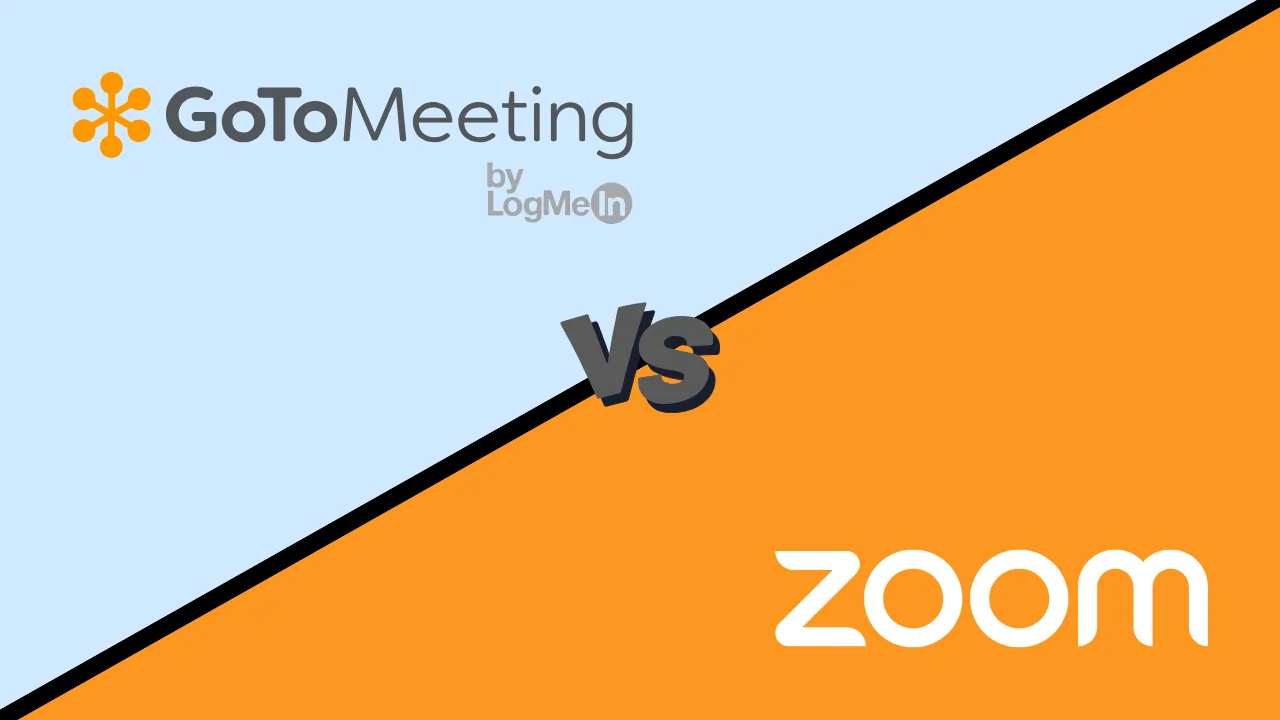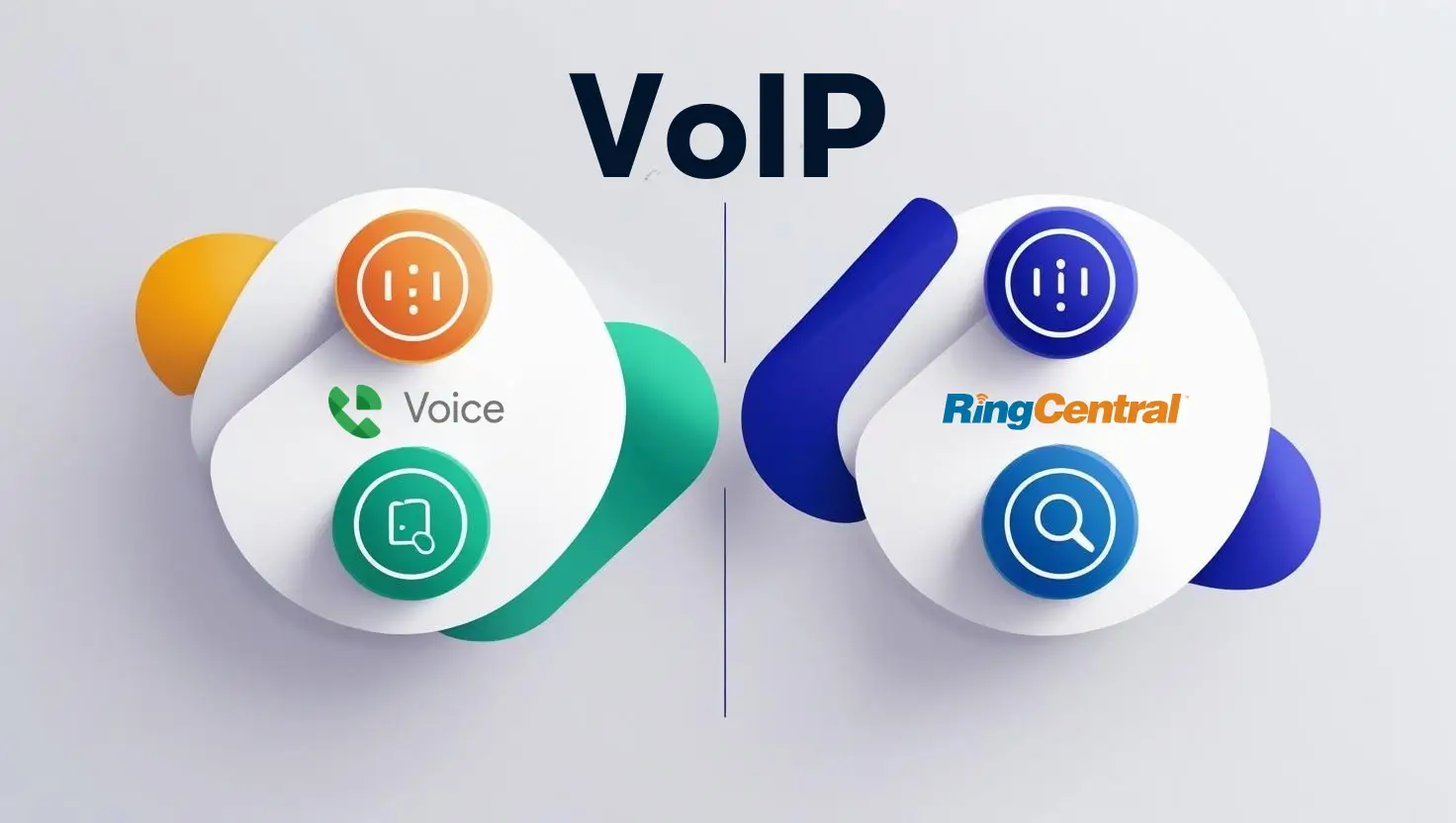Best Cloud Phone System for 2026
Last updated: March 2026
Effective communication is essential for business success, and choosing the best cloud phone system can make all the difference. A cloud-based business phone system offers flexibility, scalability, and cost-efficiency, allowing businesses to stay connected and grow without being tied down by traditional landlines. In this guide, we’ll explore the top features, benefits, and providers of cloud phone services, helping you make an informed decision for your business.
- Sign up & cancel for free
- Enterprise-class features
- Intelligent call routing & management
- Flexible communications options
- Setup and switching is simple
- Mobile and desktop apps
- First month free
- World-class customer support
- Suitable for all business types and sizes
- Save as much as 50% on your costs
- Free phone number porting
- Unlimited US, Canada, Mexico & Puerto Rico calls
- Designed with business ease in mind
- Smart collaboration tools
- Manage & collaborate on one admin portal
- Try for free
- Cloud system with simple set-up
- Work from any device
- 14-day free trial, Cancel anytime
- Unlimited calls & texts on any device
- Low-cost international calling
- No Setup Fee, Fixed Pricing
- Trusted by over 6000+ companies
- Seamless, round-the-clock support
- 30-day money back guarantee
- Making cloud communication easier
- All-in-one solution suitable to different industries
- Unlimited calling in the US & Canada
- First month free
- Advanced call management features
Why You Can Trust the Expertise of Sonary
At Sonary, we are committed to providing accurate and trustworthy information to help you make informed decisions. Our research process is meticulous, transparent, and guided by a dedication to maintaining the highest standards of integrity.
Unlike many other review platforms, we conduct in-depth evaluations of the software and services we feature. Our expert team tests and actively uses the tools we review to understand their features, performance, and value comprehensively. Our assessments are based on real-world use, giving you insights beyond surface-level descriptions.
Our research methodology includes analyzing key consumer factors such as pricing, functionality, device usability, scalability, customer support quality, and unique industry-specific features.
This hands-on approach and dedication to transparency mean you can trust Sonary to deliver regular, up-to-date content and recommendations that are well-researched and genuinely helpful for your business needs.
What is a Cloud Phone System
A cloud phone system is a modern communication solution that operates over the Internet rather than through traditional telephone lines. These systems convert voice signals into digital data, transmitting them via the Internet to deliver high-quality voice and data services. With a cloud-based telephone system, businesses can access phone services from any location, providing flexibility for remote workforces and distributed teams.
It’s important to note that ‘cloud phones’ can also refer to virtual or remote Android device solutions used for social media management, automation, and simulations. This article, however, focuses on cloud phone systems designed for business communication.
Benefits:
- Cost savings: Lower upfront costs and minimal maintenance compared to traditional phone systems.
- Flexibility: Make and receive calls from anywhere using mobile apps, computers, or desk phones.
- Scalability: Easily add or remove lines and features as your business grows.
Whether you’re a small business or a large enterprise, choosing the best cloud phone system can help you reduce communication costs and increase productivity.
Top Cloud Phone System Providers
RingCentral
RingCentral is a leading cloud-based phone system provider offering all-in-one communications with voice, video, messaging, and conferencing. It supports remote teams with seamless mobile and desktop apps, making it ideal for businesses of all sizes.






Features
General Features
Devices
Calling
Advanced Calling
Pros & Cons
Pros
Cons
Nextiva
Nextiva is known for its comprehensive cloud VoIP phone system that combines voice, video, and team messaging in one platform. It offers advanced call management features, call analytics, and integrations with popular business tools, perfect for growing businesses.






Features
General Features
Devices
Calling
Advanced Calling
Pros & Cons
Pros
Cons
8×8
8×8 offers a secure, scalable, cloud-hosted VoIP system with global reach. It provides voice, video, messaging, and contact center solutions in the cloud, making it suitable for businesses with a distributed workforce or international presence.






Features
General Features
Devices
Calling
Advanced Calling
Pros & Cons
Pros
Cons
Vonage
Vonage delivers a flexible cloud-based phone system that integrates with business apps like CRM tools and offers advanced features such as call routing and voicemail-to-email. Its solutions are particularly strong for businesses needing easy-to-use communication tools.






Features
General Features
Devices
Calling
Advanced Calling
Pros & Cons
Pros
Cons
Zoom Phone
Zoom Phone extends the popular video conferencing platform to provide a complete cloud VoIP phone system. It’s designed for businesses looking to integrate voice calls, video meetings, and messaging in a single, unified platform.






Features
General Features
Devices
Calling
Advanced Calling
Pros & Cons
Pros
Cons
GoToConnect
GoToConnect is a powerful cloud-based phone system that combines VoIP with video conferencing and team collaboration tools. It is an excellent choice for small to mid-sized businesses looking for a simple, all-in-one communication platform.






Features
General Features
Devices
Calling
Advanced Calling
Pros & Cons
Pros
Cons
Grasshopper
Grasshopper provides a streamlined cloud phone service for small businesses and startups. It offers virtual phone numbers, call forwarding, and voicemail, allowing teams to stay connected without the need for heavy infrastructure.






Features
General Features
Devices
Calling
Advanced Calling
Pros & Cons
Pros
Cons
Dialpad
Dialpad is an AI-powered cloud phone system with voice, video, and messaging features. It’s designed for modern businesses, providing AI-driven call insights and seamless integration with business apps for enhanced productivity.






Features
General Features
Devices
Calling
Advanced Calling
Pros & Cons
Pros
Cons
Ooma
Ooma offers a robust cloud-hosted VoIP system for small businesses, with features like virtual receptionists, mobile access, and advanced call management. It’s an affordable option for businesses seeking reliable cloud communication solutions.






Features
General Features
Devices
Calling
Advanced Calling
Pros & Cons
Pros
Cons
Aircall
Aircall is a user-friendly cloud-based phone system built for customer service and sales teams. It integrates with popular CRM and helpdesk tools, making it ideal for businesses prioritizing customer experience through seamless communications.






Features
General Features
Devices
Calling
Advanced Calling
Pros & Cons
Pros
Cons
Why Choose a Cloud-Based Business Phone System?
Cost Efficiency:
One of the most significant advantages of a cloud-based business phone system is its cost-effectiveness. Maintenance costs are greatly reduced since there’s no need for expensive hardware. Instead of investing in bulky on-premises equipment, you can use the cloud to manage your communications.
- Pay for what you need: Most cloud phone systems use a subscription-based pricing model, so you only pay for the features and lines you use. Whether you need a simple setup or advanced features, there’s a plan that fits your business.
Flexibility and Mobility:
A cloud VoIP phone system allows your team to stay connected regardless of location. Through a user-friendly mobile app, employees can make and receive calls from any device—a mobile phone, computer, or desk phone. This is especially beneficial for businesses with remote teams or employees who frequently travel.
Advanced Features:
Beyond basic call functionality, a cloud phone system offers advanced features like auto-attendants, call routing, voicemail-to-email, and more. Some systems also provide one click operations for tasks such as device replacement, data backup, or synchronized actions, further enhancing user convenience. These tools can streamline operations, enhance customer interactions, and improve internal communication.
Scalability:
Unlike traditional phone systems, cloud-based phone systems can easily grow with your business. Adding new users or upgrading to more advanced features is as simple as adjusting your subscription. This ensures you’re always equipped with the right tools, no matter how quickly your business expands.
Understanding Cloud-Hosted VoIP
A cloud-hosted VoIP system delivers phone services via the internet, removing the need for on-premises hardware. Managed by a service provider, cloud-hosted VoIP offers an all-in-one solution that reduces IT burden and operational costs.
Cloud-hosted VoIP systems enable businesses to operate multiple accounts or devices simultaneously with ease, supporting automation and efficient management. These systems can also run continuously in the background, ensuring seamless communication without manual intervention.
Advantages of Cloud-Hosted VoIP:
- Reduced IT Costs: Because your phone system is managed off-site, you don’t need to worry about maintaining or upgrading hardware.
- Automatic Updates: Stay up to date with the latest technology and security features without manual intervention.
- Disaster Recovery: A cloud-based telephone system ensures your business communications remain operational, even during outages or other disruptions.
Use Cases:
A cloud-hosted VoIP system is ideal for businesses of all sizes, particularly small and medium enterprises, startups, and those with a distributed workforce. Companies looking for cost-effective, scalable, and flexible communication solutions benefit the most from these systems.
Key Features of the Best Cloud-Based Phone System
When choosing the best cloud-based phone system, look for these critical features:
-
Call Management: This includes features like call forwarding, call queues, and routing, which help manage high call volumes and ensure efficient communication.
-
Voicemail and Auto-Attendant: With voicemail-to-email functionality, you can listen to messages anytime, anywhere. An auto-attendant can route calls to the correct department or individual without manual intervention, improving customer experience.
-
Unified Communications: Many cloud phone services integrate seamlessly with customer relationship management (CRM) systems, email, and messaging platforms, making it easier to manage all your communications in one place. Many of these services can also be accessed and managed directly through a web browser, providing additional flexibility.
-
Video Conferencing: Many cloud-based phone systems now offer integrated video conferencing, allowing you to host virtual meetings, webinars, and team discussions easily. These features are often available through your browser, so you can join or manage meetings without needing to install extra software.
Mobile and Remote Work Support:
Providers like Nextiva and Dialpad offer mobile apps, allowing employees to access their phone systems on the go. This is perfect for businesses with remote or hybrid workforces that need flexibility and mobility in their communication systems.
Security and Authentication in Cloud Phone Systems
Security and authentication are at the core of any reliable cloud phone system, especially for users managing multiple accounts and devices. Modern cloud phone solutions employ advanced encryption methods, such as SSL/TLS, to safeguard data as it travels between phones, devices, and servers. This ensures that sensitive information remains protected from unauthorized access at every stage.
To further enhance security, cloud phone systems implement robust authentication protocols. Features like two-factor authentication and biometric verification help guarantee that only authorized users can access their accounts and devices, providing peace of mind for businesses and individuals alike. Providers such as VMOS Cloud and LDCloud are known for delivering secure and stable cloud phone solutions, allowing users to safely manage multiple accounts and devices without compromising on security.
Regular security updates and proactive patch management are also standard, ensuring that cloud phone systems stay ahead of emerging threats. With these comprehensive security features, users can confidently access their data and manage their communications, knowing their information is protected by the latest cloud technology.
Integration with Social Media
Cloud phone systems are designed to empower users with seamless integration across popular social media platforms. This integration allows users to manage multiple social media accounts directly from their cloud phone interface, streamlining marketing and engagement efforts. With cloud phone systems, a single person can efficiently manage multiple social media accounts without the need for multiple physical devices. Whether you’re posting updates, responding to comments, or tracking engagement metrics, cloud technology makes it easy to handle all your social media management tasks in one place.
Solutions like DuoPlus Cloud Phone and Redfinger offer built-in support for platforms such as TikTok, Facebook, and Instagram. This means users can efficiently coordinate their marketing campaigns, boost productivity, and maintain a consistent online presence—all from their cloud phone. By leveraging these integrations, businesses and individuals can simplify account management, enhance their marketing strategies, and maximize the impact of their social media activities.
Cloud Phone Systems for Small Teams
For small teams seeking a simple yet powerful communication solution, cloud phone systems are an excellent choice. These platforms offer a range of features, such as virtual phone numbers, call forwarding, and voicemail transcription, that help small teams stay connected and organized. The cloud-based approach means there’s no need for complex hardware or IT support, making setup and management straightforward.
Providers like Nextiva and Grasshopper are known for offering flexible pricing plans and user-friendly interfaces, allowing small teams to quickly get started and scale as needed. With cloud phone systems, small teams benefit from advanced features that were once only available to larger enterprises, all while keeping costs low and operations efficient. This makes cloud phone solutions a smart, scalable, and simple option for growing businesses.
Alternative Uses of Cloud Technology in Business Communication
Cloud technology extends far beyond traditional phone systems, offering a variety of innovative solutions that transform business communication. Cloud-based video conferencing tools like Zoom and Skype enable teams to collaborate in real time, regardless of location, while project management platforms such as Trello and Asana help organize tasks and streamline workflows.
Businesses can also leverage cloud technology to deploy chatbots and virtual assistants, enhancing customer support and engagement across multiple channels—including social media, email, and phone. Cloud-based contact centers further empower businesses to manage customer interactions efficiently, providing unified support and improving overall productivity.
Cloud technology can also support live sales activities, enabling businesses to reach global audiences and drive revenue through online events, advertising, and video content. This integration of sales with cloud solutions helps organizations expand their global reach and maximize monetization opportunities.
By adopting these cloud-powered solutions, businesses can boost their management capabilities, drive innovation, and stay ahead in today’s fast-paced digital world. Cloud technology not only supports communication but also fuels growth, efficiency, and customer satisfaction across every aspect of business operations.
Comparing the Best Cloud-Based Phone Systems
When conducting a comparison of cloud-based phone systems, consider the following factors to ensure you select the best solution for your business needs. A comparison table of features or pricing can also help businesses make informed decisions by clearly outlining the differences between providers.
-
Top Providers: Companies like Zoom, RingCentral, Vonage, and GoToConnect are leading providers of cloud phone systems. Each offers unique features tailored to different business needs, so compare plans based on your priorities.
-
Customization: Some providers allow customization, enabling businesses to tailor their cloud phone system to their specific requirements. Whether you need integrations with CRM tools, advanced call management features, or support for remote teams, choosing a solution that can be adjusted to meet your goals is essential.
-
Mobile and Remote Work Support: If your business operates with remote teams or employees who need to work on the go, choose a cloud phone system with strong mobile support. Look for systems with mobile apps that allow users to access the phone system from any device, ensuring seamless communication wherever they are.
What to Look for in a Cloud Phone System
When searching for the best cloud phone system, it’s essential to focus on features and capabilities that will truly empower your workflow and communication. Start by ensuring the system supports multiple accounts and multiple devices, so you can seamlessly manage all your communications—whether you’re running a business, handling multiple cloud phones, or juggling personal and professional accounts. This flexibility is especially valuable for users who need to operate across different locations or devices, ensuring you never miss an important call or message.
- Performance is another critical factor. Look for a cloud phone solution that delivers low latency and high reliability, particularly if you plan to use it for cloud gaming, running multiple games, or supporting resource-intensive applications. The best cloud phone systems offer robust support for cloud emulators and Android emulators, making them ideal for developers and gamers who need to test, play, or manage multiple games and apps with minimal lag.
- Accessibility and ease of use should also be top priorities. Choose a system that offers one-click operations for essential tasks, making it simple to switch between accounts, devices, or applications. The ability to access your cloud phone system via a web browser adds another layer of convenience, allowing you to stay connected and productive from anywhere in the world.
- Security is paramount—ensure the system provides strong data protection and privacy features to keep your information safe. Innovative technology, such as integrated voice and video calling, team chat, and file sharing, can further boost your team’s productivity and collaboration. For developers, look for solutions that offer powerful tools for testing and debugging applications, streamlining your workflow and saving valuable time.
- Finally, consider the level of customer support and resources available. The best cloud phone providers offer comprehensive tutorials, FAQs, and direct contact options, ensuring you have the help you need at every stage. By evaluating these factors—multiple accounts, multiple devices, low latency, accessibility, security, innovation, and support—you can confidently choose a cloud phone system that meets your needs and enhances your productivity, efficiency, and overall communication experience.
Related Articles
Cloud Phone System Pricing
Pricing Breakdown:
The cost of a cloud phone system typically depends on the number of users, the features required, and any additional services (like international calling or advanced call management). Here’s a general breakdown:
-
Per-User Pricing: Most providers charge between $10 and $60 per user per month, depending on the features included. Typically, the more advanced the features (like call analytics or CRM integration), the higher the price per user.
-
Upfront vs. Recurring Costs: Cloud-based systems have lower upfront costs than traditional systems since hardware is unnecessary. However, businesses will need to account for ongoing subscription fees.
-
Hidden Costs: Be aware of potential hidden costs, such as setup fees, hardware purchases (like IP phones), or add-ons for advanced features. Always check your provider’s pricing terms to avoid surprises.
Transitioning to a Cloud-Based Phone System
Switching to a cloud-based business phone system is simpler than many businesses expect. Here’s how to make the transition:
-
Assess Your Current Needs: Determine how many users you need, the features required, and whether you’ll need integration with other software like CRM systems.
-
Select a Provider: Compare providers based on pricing, features, and customer reviews. Choose the one that best fits your business’s specific needs.
-
Plan the Migration: Most cloud phone services offer support during migration. Many providers also provide extensive resources, such as guides, fallback call routing strategies, and customizable features, to help businesses transition smoothly and optimize their operations. Ensure you have a plan to avoid downtime and test your new system before going live.
-
Training and Onboarding: Ensure employees are familiar with the new system. Many providers offer onboarding, training, and additional resources to make the transition smoother.
Common Concerns About Cloud Phone Systems
Security and Privacy:
Security is a top concern with any cloud-based system. Most cloud phone systems provide robust encryption and security features to protect your data. Always choose a provider with strong security protocols, such as end-to-end encryption and multi-factor authentication.
Reliability:
Cloud-based telephone systems rely on a stable internet connection. If your connection goes down, so does your phone system. To ensure consistent service, consider having a backup internet connection or choosing a provider with high uptime guarantees.
Emergency Services:
Not all cloud phone systems handle emergency (911) calls the same way as traditional phone systems. Ask your provider how emergency calls are managed and whether additional setup is required for accurate location services.
Conclusion: Choosing the Best Cloud Phone System for Your Business
Choosing the best cloud phone system for your business can streamline your communication processes, reduce costs, and provide flexibility for remote or hybrid teams. Whether you’re a small business needing basic phone services or a growing company requiring advanced features like CRM integration and call analytics, a cloud-based phone system fits your needs.
Providers like Zoom, RingCentral, and Vonage offer scalable solutions designed to grow with your business. Compare their offerings and select the provider that best suits your operational goals and budget.
Frequently Asked Questions (FAQs) About Cloud Phone Systems
1. What is a Cloud Phone System?
A cloud phone system is an internet-based phone service that allows businesses to make and receive calls from any device with an internet connection. It offers flexibility and scalability.
2. How Does a Cloud-Based Phone System Work?
It transmits voice data over the internet and is hosted by a third-party provider, eliminating the need for on-premises equipment while offering advanced features.
3. What Are the Key Benefits of Using a Cloud Phone System?
- Cost-effective: Low upfront costs and no hardware.
- Flexible: Accessible from any device.
- Scalable: Easily add or remove users.
- Advanced features: Includes voicemail, call routing, and analytics.
4. Is a Cloud Phone System Reliable?
Yes, as long as you have a stable internet connection. Many providers offer 99.9% uptime guarantees and robust failover systems.
5. How Secure Is a Cloud-Based Phone System?
Most systems offer encryption and strong security measures, ensuring safe communication. Providers handle updates to maintain security.
6. What Equipment Do I Need for a Cloud Phone System?
Typically, no special hardware is needed. You can use smartphones, computers, or existing IP phones. Providers also offer softphone apps for easy access.
7. Can a Cloud Phone System Be Used by Remote Teams?
Yes, remote teams can use cloud phone systems from any location, making it ideal for businesses with remote or hybrid work setups.
8. How Much Does a Cloud Phone System Cost?
Depending on features, costs range from $10 to $60 per user per month. Basic plans cover essential functions, while advanced plans offer more tools.
9. How Do I Transition to a Cloud-Based Phone System?
Evaluate your needs and choose a provider that will assist with the migration. You can typically keep existing phone numbers with minimal downtime.
10. Are Cloud Phone Systems Suitable for Small Businesses?
Yes, they are affordable, flexible, and scalable, making them perfect for small businesses looking for professional communication tools without large investments.






